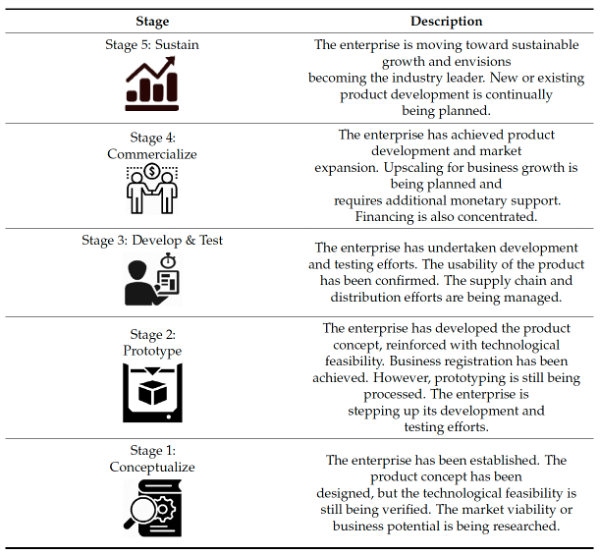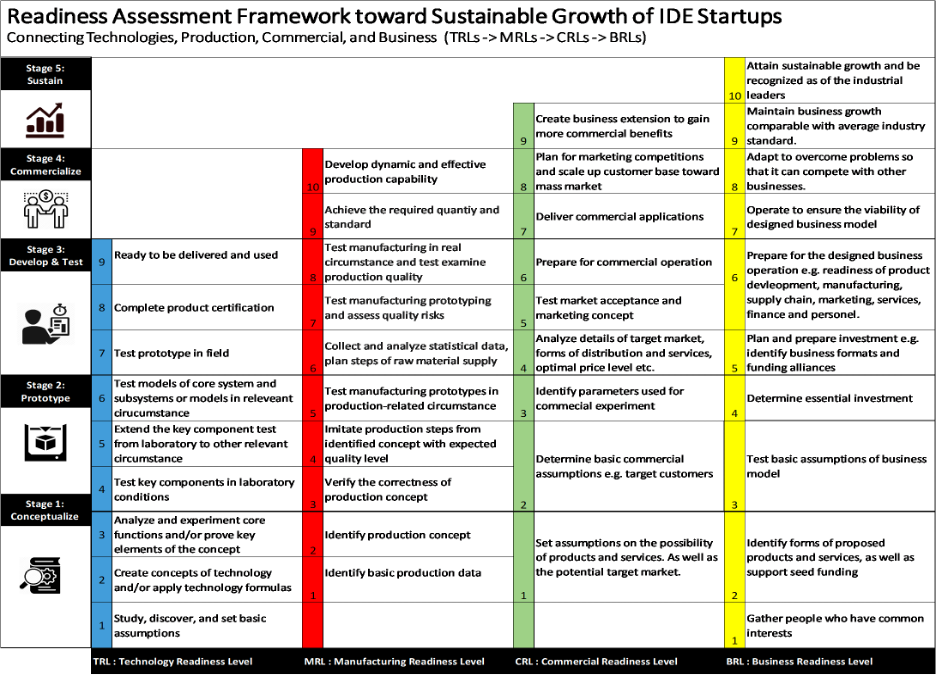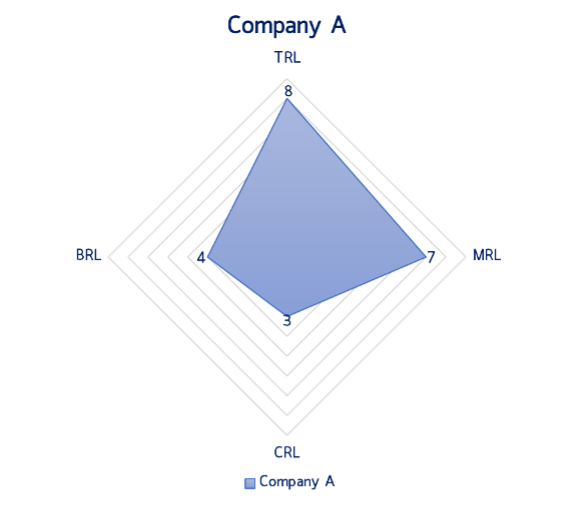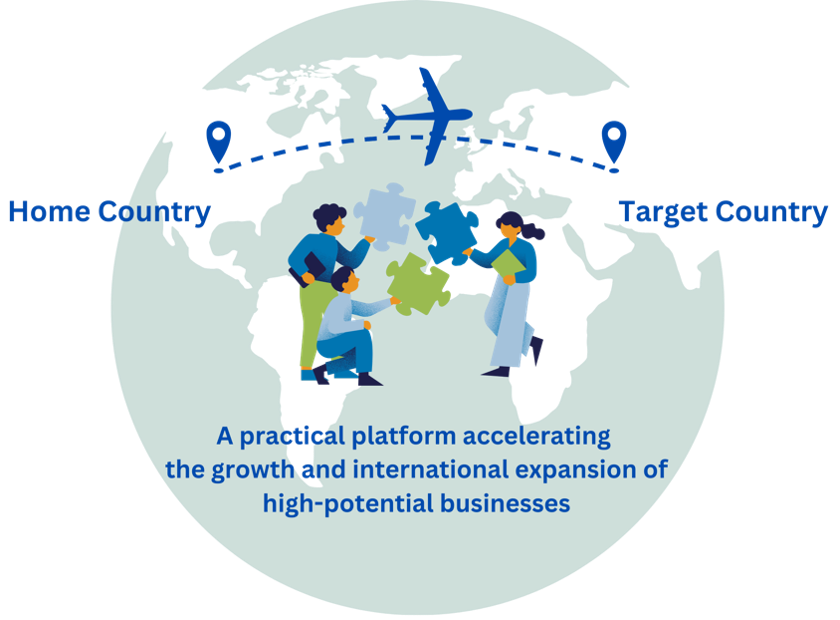Material and Publication
บทความนี้ ได้ถูกนำเสนอในงาน IASP World Conference on Science Parks and Areas of Innovation ครั้งที่ 41 จัดขึ้นที่ไนโรบี ประเทศเคนยา ระหว่างวันที่ 25-27 กันยายน 2024 โดยหัวข้อของการประชุมจะเชิญชวนให้พิจารณาถึงองค์ประกอบสำคัญของความร่วมมือระดับโลก เพื่อให้มั่นใจว่ามีบุคลากรที่มีความสามารถเพียงพอ รวมถึงฐานนวัตกรรมและเทคโนโลยีที่แข็งแกร่ง เพื่อรักษาความยั่งยืนของเศรษฐกิจโลก ในงานนี้ คุณวัชรินทร์ วิทยวีรศักดิ์ ผู้อำนวยการสมาคมหน่วยบ่มเพาะธุรกิจและอุทยานวิทยาศาสตร์ไทย (Thai-BISPA) ได้เป็นตัวแทนประเทศไทยในการเข้าร่วมสัมนาและนำเสนอบทความหัวข้อ “Co-Acceleration: a Value Co-creation Platform for Internationalization” โดยมีเนื้อหากล่าวถึงความท้าทายของการทำธุรกิจ โดยเฉพาะอย่างยิ่งเมื่อเข้าสู่ตลาดต่างประเทศ ความซับซ้อนเหล่านี้จะยิ่งทวีคูณ อุปสรรคด้านการสื่อสาร ความแตกต่างทางวัฒนธรรม ตลอดจนข้อพิจารณาทางกฎหมายและการเงินที่หลากหลาย อาจทำให้กระบวนการนี้ดูยุ่งยากและซับซ้อน หากธุรกิจต้องการเติบโตและประสบความสำเร็จ จำเป็นอย่างยิ่งที่จะต้องสร้างความเชื่อมโยงกับผู้มีส่วนได้ส่วนเสีย ทั้งจากภาคเอกชนและภาครัฐภายในระบบนิเวศธุรกิจ ซึ่งสามารถให้การสนับสนุนด้าน การพัฒนาผลิตภัณฑ์ การวางตำแหน่งผลิตภัณฑ์ การจัดหาเงินทุนสำหรับการเริ่มต้นและการเติบโตของธุรกิจ รวมถึงการจัดหาโครงสร้างพื้นฐานที่จำเป็น คุณวัชรินทร์ ได้นำเสนอแพลตฟอร์ม Co-Acceleration เป็น Solution ที่ออกแบบมาเพื่อตอบโจทย์ความท้าทายเหล่านี้ โดยมอบการสนับสนุนสำหรับธุรกิจที่อยู่ในระยะบ่มเพาะ ซึ่งต้องการขยายตลาดไปต่างประเทศหรือสร้างพันธมิตรในต่างแดน แพลตฟอร์มนี้ใช้ประโยชน์จากเครือข่ายที่กว้างขวางขององค์กรเจ้าภาพในหลายประเทศ เพื่อช่วยเหลือธุรกิจขนาดกลางและขนาดย่อม (SMEs) โดยมีเป้าหมายเพื่อช่วยให้การขยายธุรกิจสู่ตลาดสากลเป็นไปอย่างราบรื่น พร้อมทั้งลดความเสี่ยงที่อาจเกิดขึ้น
การเข้าถึงทรัพยากรที่จำเป็นต่อการบรรลุเป้าหมายทางธุรกิจควรพิจารณาองค์ประกอบดังนี้
กรอบการประเมินความพร้อมด้านนวัตกรรม ซึ่งอธิบายการพัฒนาของ บริษัทที่ขับเคลื่อนด้วยนวัตกรรม ไปสู่การเติบโตที่ยั่งยืนในห้าขั้นตอน ประกอบด้วย 4 มิติ ที่ใช้ในการประเมินเครื่องมือสำหรับสตาร์ทอัพที่ขับเคลื่อนด้วยนวัตกรรม (IDE) ได้แก่ ระดับความพร้อมด้านเทคโนโลยี (Technology Readiness Level – TRL), ระดับความพร้อมด้านการผลิต (Manufacturing Readiness Level – MRL), ระดับความพร้อมด้านการค้า (Commercial Readiness Level – CRL), และ ระดับความพร้อมด้านธุรกิจ (Business Readiness Level – BRL) รายละเอียดที่ได้จากการประเมินจะถูกนำเสนอในลำดับถัดไป
Dimension 1: Technology Readiness Level (TRL) วัดความพร้อมด้านเทคโนโลยี
Dimension 2: Manufacturing Readiness Level (MRL) วัดความพร้อมในด้านการผลิต ในมุมมองการผลิตจากสภาพแวดล้อมจริง มาตรฐานและกระบวนการผลิต การบริหาร Supply chain
Dimension 3: Commercial Readiness Level (CRL) วัดความพร้อมด้านการตลาดและการพาณิชย์ ในมุมมองของลูกค้าหรือผู้ใช้ ความต้องการผลิตภัณฑ์ ปัจจัยทางการตลาด ห่วงโซ่อุปทาน กฎหมายหรือมาตรฐานที่เกี่ยวข้องกับผลิตภัณฑ์
Dimension 4: Business Readiness Level (BRL) วัดความพร้อมในการดำเนินธุรกิจ การวางกลยุทธ์ โครงสร้างองค์กร บุคลากร การวางแผนการเงิน และโมเดลธุรกิจ
แพลตฟอร์ม Co-Acceleration ที่ดำเนินการโดย Thai-BISPA ร่วมกับพันธมิตรเชิงกลยุทธ์อื่นๆ รวมถึงอุทยานวิทยาศาสตร์และศูนย์บ่มเพาะธุรกิจในประเทศไทย เป็นความร่วมมือในการสนับสนุนแผนการขยายตัวสู่ตลาดสากลของบริษัท Tech startups โดยมีองค์ประกอบสำคัญ ดังนี้
ในบทความนี้ คุณวัชรินทร์ ได้นำเสนอรูปแบบโครงการเร่งการเติบโตร่วมผ่านกรณีศึกษา 2 กรณี ได้แก่ ASEAN Business Incubator Network – ABINet และ Asian Association of Business Incubation – AABI
Case study 1: ASEAN Business Incubator Network (ABINet)
กระทรวงสหกรณ์และวิสาหกิจขนาดกลางและขนาดย่อมแห่งสาธารณรัฐอินโดนีเซียได้รับมอบหมายให้ดำเนินโครงการอาเซียน-JAIF ภายใต้ชื่อ “ SME Competitiveness through ASEAN Business Incubator Network – ABINet in 2019” โดยหนึ่งในผลลัพธ์หลักของโครงการคือการยกระดับความสามารถในการแข่งขันของ SME ในการเข้าสู่ประชาคมเศรษฐกิจอาเซียน (AEC) ผ่านโครงการนำร่อง “Co-Incubation Program” ร่วมกับพันธมิตรที่ได้รับการคัดเลือกในประเทศเป้าหมาย
Case study 2: Asian Association of Business Incubation (AABI)
Asian Association of Business Incubation – AABI โดยเป็นองค์กรไม่แสวงหาผลกำไรระดับนานาชาติที่มุ่งเน้นการสร้างระบบนิเวศของศูนย์บ่มเพาะธุรกิจ (Incubation Ecosystem) ในภูมิภาคเอเชียแปซิฟิก และสนับสนุน SME ด้านเทคโนโลยีในเอเชียให้สามารถขยายธุรกิจสู่ตลาดสากล ในปี Shanghai Technology Innovation Center – STIC และสมาคม Thai-BISPA ซึ่งเป็นสมาชิกของ AABI ทั้งคู่ เกิดความร่วมมือในการสนับสนุนการขยายธุรกิจ
จากผลการศึกษา แสดงให้เห็นว่าการสร้างคุณค่าเพื่อพัฒนาธุรกิจระหว่างประเทศนั้น ไม่เพียงแต่อาศัยความพร้อมของธุรกิจและผู้ประกอบการเท่านั้น แต่ยังต้องอาศัยความร่วมมือและเชื่อมโยงจากทุกภาคส่วนเพื่อเข้าถึงทรัพยากร เพื่อสนับสนุนแผนการขยายธุรกิจสู่ระดับสากล
Co-Acceleration: a Value Co-creation Platform for Internationalization
IASP24-PAP-1116
Session 4. Distributed global manufacturing and shared value creation
Keywords: Co-Acceleration, cross-border collaboration, Internationalization, Value Co-Creation
Watcharin Witthayaweerasak* 1
1Thai-BISPA, Bangkok, Thailand
Executive Summary
The paper discusses an exploratory case study centered on the management of a co-acceleration scheme within the Asia Pacific Region. This scheme is analyzed through the cross-border framework of ‘value co-creation’, which views co-acceleration as a collaborative process orchestrated by science parks and business incubators from different economies.
Through an action research approach, the paper illustrates how the creation of a shared sphere of interaction and mutual influence among the acceleration parties emerges as a crucial management activity in fostering continuous dialogue in international business development.
In this study, Thai-BISPA together with other participating organizations had actively designed and executed the program to serve the internationalization plan of selected companies in exploring the emerging opportunities in Thailand. Thai-BISPA had extended their network of innovation players to support this scheme and had utilized the entrepreneurship development toolkits to facilitate all participants throughout the co-acceleration period. The program is to utilize the strength, expertise and connection of host organizations to facilitate the co-creation of value for client businesses. This underscores the pivotal role of innovation intermediaries in driving collaborative value generation in regional innovation ecosystem.
1. Introduction
Starting a business anywhere presents its challenges, and navigating the complexities of international markets amplifies these difficulties. Communication barriers, cultural differences, and a myriad of legal and financial considerations can make the process daunting. If the ventures aim to successfully develop, they need to connect themselves with various private and public stakeholders of the ecosystem, which can assist them in product development, product placement, start-up and growth financing, including providing for the necessary infrastructure.
A co-acceleration scheme offers a tailored solution to address these challenges by providing a supportive platform for incubated enterprises seeking to expand into foreign markets or establish partnerships abroad. This program capitalizes on the host’s extensive network across different countries to assist small and medium enterprises in enhancing their competitiveness and scaling their operations. By facilitating connections with suppliers, customers, and partners overseas, the scheme aims to streamline the process of international expansion and mitigate some of the inherent risks.
The overarching vision behind this initiative is to cultivate a unique cross-border environment, fostering collaboration and innovation among start-ups, scale-ups, and entrepreneurial ventures from diverse economies. By creating a conducive ecosystem for growth and development, the program seeks to attract and nurture ambitious entrepreneurs, enabling them to thrive in an increasingly globalized marketplace. Ultimately, the goal is to empower businesses to effectively navigate the complexities of international commerce and realize their full potential on a global scale.
2. Theoretical background
To get into the implementation of such a cross-border co-acceleration scheme, the stakeholders need to follow a structured approach. Important in that sense is the “learning by doing” and lean approach. The project partners as well as other stakeholders have to be aware of the notion that only through cross-border cooperation they are able to create an internationally competitive start-up ecosystem supporting local as well as attracted foreign entrepreneurial talents in their efforts to create successful high tech companies.
According to the practices pursued by several programs such as The International Business Innovation Association (InBIA) and TransUP Project by European Union[1] which were specifically designed to ensure that businesses expanding into a new country are provided with an accelerated introduction to that country’s business practices, regulations, and culture. Each entrepreneurship center is responsible to help make contacts in a new country more quickly and efficiently while providing access to the resources necessary to meet business goals.
Here are some key components and considerations for co-acceleration scheme:
- Networking and Partnerships: Leverage the host’s network across different countries to provide SMEs with valuable connections and partnerships. This can include introductions to potential suppliers, customers, investors, and strategic partners.
- Market Research and Entry Strategy: Offer support in market research and developing entry strategies tailored to each target market. This could involve analyzing market trends, understanding local consumer behavior, and identifying opportunities for growth.
_____________
[1] European Commission. (2017). Supporting Transnational Start-up Ecosystems. Retrieved from https://cordis.europa.eu/project/id/699644
- Legal and Regulatory Guidance: Provide assistance with navigating the legal and regulatory landscape in target countries. This might include understanding tax laws, business registration requirements, intellectual property protection, and compliance with local regulations.
- Financial Support: Offer financial assistance or guidance to help SMEs manage the costs associated with entering new markets. This could involve providing access to funding, facilitating investment opportunities, or advising on financial planning and budgeting.
- Cultural and Communication Training: Offer training and resources to help SMEs bridge communication and cultural gaps when working with partners and customers from different countries. This could include language classes, cultural sensitivity training, and tips for effective cross-cultural communication.
- Mentorship and Coaching: Provide mentorship and coaching from experienced entrepreneurs or industry experts who have successfully expanded into international markets. This can offer valuable insights, guidance, and support throughout the expansion process.
- Monitoring and Evaluation: Implement systems for monitoring and evaluating the progress of participating SMEs in their international expansion efforts. This can help identify challenges early on and make necessary adjustments to ensure success.
- Community and Networking Events: Organize events, workshops, and networking opportunities where participating SMEs can connect with each other, share experiences, and learn from each other’s successes and challenges.
Additionally, this study utilized a readiness level (RL) framework as a primary tool. A company’s readiness level is defined using the maturity model concept, which categorizes phases of growth and maturity. The RL is widely used because it facilitates clear communication and a shared understanding of technology, manufacturing, commerce, and business in terms of development stages, elements, and associated risks. Furthermore, the RL has been broadly adopted by various actors within an innovation ecosystem—including industrial firms, startups, and researchers—who aim for research commercialization. Consequently, a precise readiness assessment, encompassing both technological and non-technological aspects, can make strategic planning more realistic.
The innovation readiness assessment framework[1] which describes the development of innovation-driven enterprises toward sustainable growth in five stages, consists of four dimensions to be employed in the assessment tool for IDE startups. They are the technology readiness level (TRL), manufacturing readiness level (MRL), commercial readiness level (CRL), and business readiness level (BRL). The resulting descriptions are presented below.
Dimension 1: Technology Readiness Level (TRL)
The TRL evaluates the advancement of technology by using the necessary indicators to classify the nine levels of technology readiness, from the concept generation to the application in real circumstances
Dimension 2: Manufacturing Readiness Level (MRL)
The manufacturing readiness level (MRL) was used with the purposes of assessing the readiness levels of manufacturing and identifying existing system risks. Generally, the manufacturing process cannot be assessed until the manufacturing technology and prototype are stable.
Dimension 3: Commercial Readiness Level (CRL)
The commercial readiness level (CRL) portrays the development of marketing efforts, for example, introducing products to target markets, measuring consumers’ price sensitivity, and accessing new markets.
Dimension 4: Business Readiness Level (BRL)
The business readiness level (BRL) indicates the development of efforts in management, for example the business model, capital, business concept, business strategy, cash flow, business establishment, and teamwork management, with the purposes of fixing problems within firms and growing their business toward sustainability.
[1] Gerdsri N, Manotungvorapun N. Readiness Assessment for IDE Startups: A Pathway toward Sustainable Growth. Sustainability. 2021; 13(24):13687. https://doi.org/10.3390/su132413687

Image 1 – Five stages of the development of innovation-driven enterprises toward sustainable growth
Image 2 – The readiness assessment framework toward sustainable growth of IDE Startups
Image 3 – The Radar Chart representing the IRL Results of Company A
- Research Methodology
The methodology described aligns closely with action research, a systematic inquiry process that aims to address real-world problems collaboratively and iteratively.
Key strategies for conducting research in this participatory, collaborative, and cyclical manner in this paper include:
Stakeholder Engagement: Involve stakeholders, including government, academia, investors, mentors, corporates, and industries. Their perspectives and expertise are essential for identifying relevant issues ranging from market opportunities, manufacturing practices, standards/regulations, customer journeys, and competitor landscape, as well as co-creating solutions.
Co-design and Co-creation: Foster a collaborative approach to problem-solving, where key players in the innovation ecosystem actively participate in designing and developing solutions. This ensures that the schemes are contextually appropriate and address the needs and priorities of the participating organizations.
Iterative Process: Embrace an iterative approach to research and problem-solving, where continuous cycles of planning, action, reflection, and adaptation drive progress. This allows for flexibility and responsiveness to changing circumstances and feedback from stakeholders in the pilot scheme.
Action-Oriented Outcomes: Focus on producing actionable outcomes that lead to tangible changes or improvements. This involves advocacy, policy recommendations, organizational transformations, or community initiatives that address the bold moves towards internationalization.
Overall, action research methodologies provide a systematic framework for generating both knowledge and action, with the ultimate goal of creating positive social and professional enhancement. By engaging stakeholders, fostering collaboration, and embracing iterative processes, we can develop practical solutions to serve the needs and contribute to meaningful impact in innovation management at a global scale.
- Case Study: The Co-Acceleration Scheme co-hosted by Thai-BISPA
The Co-Acceleration initiative undertaken by Thai-BISPA, along with other strategic partners including Science Parks and Business Incubators in Thailand, demonstrates a collaborative effort to support the internationalization plans of selected technology-based companies. Here’s a breakdown of the key aspects of the program:
- Program Planning and Collaboration: Thai-BISPA and other participating organizations actively collaborated in designing and executing the program. This indicates a shared commitment to achieving maximum benefits for all participants involved, including the technology-based companies and their client companies. The RL assessment were also conducted by scheme management team and experts to monitor the maturity of the participating companies beforehands so that the program can be tailor made to leverage their business potential in the new territory.
- Internationalization Focus: The program not only targets the Thai market but also aims to explore opportunities in neighboring countries such as Cambodia, Laos, and Vietnam. This broader regional approach reflects a strategic outlook towards expanding business operations beyond national borders.
- Network Expansion and Support Ecosystem: Thai-BISPA leverages its extensive network within the innovation ecosystem, including government agencies, academia, investors, corporates, and mentors. This network provides valuable support and resources to facilitate the internationalization efforts of the participating companies.
- Utilization of Entrepreneurship Development Toolkits: Thai-BISPA utilizes entrepreneurship development toolkits to support all participants throughout the co-acceleration period. These toolkits likely include resources, training materials, workshops, and mentorship programs tailored to the specific needs of technology-based startups aiming to scale up their operations.
- Co-acceleration Concept: The main concept of the program revolves around harnessing the strengths, expertise, and connections of the host organizations to fulfill the scale-up dreams of selected companies. This approach emphasizes collaboration, synergy, and leveraging existing resources to drive the growth and success of the participating companies.
Overall, the co-acceleration program led by Thai-BISPA and its partners represents a strategic initiative to support the growth and international expansion of technology-based companies in Thailand and neighbouring countries. By leveraging collaborative networks, entrepreneurship development toolkits, and a focused approach to internationalization, the program aims to empower selected companies to achieve their scale-up aspirations successfully.
Image 4 – Co-Acceleration: Value Co-creation Platform for Internationalization
In this paper, we demonstrated the co-acceleration scheme with 2 case studies: ASEAN Business Incubator Network (ABINet) and Asian Association of Business Incubation (AABI)
4.1 ASEAN Business Incubator Network (ABINet)
Ministry for Cooperatives and SME, Republic of Indonesia was commissioned to implement the ASEAN-JAIF Project titled Promoting SME Competitiveness through ASEAN Business Incubator Network – ABINet in 2019. One of the major outputs addressed the aim to leverage the SME Competitiveness when entering the ASEAN Economic Community by piloting Co-Incubation Program with selected partners in the identified country.
The specific objective of co-incubation program under ABINet is to develop and pilot a model program to facilitate SME Incubatees expanding their product market to other ASEAN Member States (AMS) with soft landing by selecting 3 SME Incubatees who has goal to expand its market to Thailand. This project was executed and completed right before the Covid-19 pandemic which gave us the chance to perform the scheme locally in Thailand.
Expected Outputs were designed to explore the chance of success in the following angles:
- The participating companies and Technology Business Incubator (TBI) Senders are able to navigate the path of penetrating Thai market through several business models including trading and distribution, joint venture, and foreign direct investment.
- The participating companies and TBI Senders have basic understadning of local market opportunities and business environment in the vertical area of interest.
- The participating companies have a chance to introduce their businesses and at the same time to validatie respective products to potential partners and/or customers
In the program, Thai host organizations had selected 3 participating companies from Indonesia, Malaysia and the Philippines. Their businesses were related to agriculture and agro industry as our sector preference since we saw the potential and opportunities for them in the region. Therefore, three consultancy visits were pre-arranged with different missions ranging from market exploration, industry engagement, and mentoring session focusing on strategic planning.
As a result, one of the companies had finally set up a joint venture business and softlanded at the Southern Thailand Science Park located near the border between Thailand and Malaysia to scale up their business in Thailand.
4.2 Asian Association of Business Incubation (AABI)
Established in 2002, Asian Association of Business Incubation (AABI) is an international nonprofit organization that focuses on building incubation ecosystem in Asian-pacific region and supports ambitious Asian tech-SMEs in going globally. In 2021, both as association members of AABI, Shanghai Technology Innovation Center (STIC) and Thai Business Incubators and Science Parks Association (Thai-BISPA) jointly initiate the pilot co-acceleration program under the AABI framework titled “Sino-Thai Acceleration Camp [Online],” working together with local incubators and accelerators from both sides to mutually support business expansion and international collaboration of tech-companies from both China and Thailand. Even though the program was initiated during the pandemic, all parties have pursued their best in supporting the scheme to achieve 3 key objectives:
- Open the windows of opportunities for potential companies to pursue sustainable growth through internationalization
- Offer practical solutions to ensure that businesses expanding into new markets are introduced to the country’s business practices, culture and opportunities more effectively
- Utilize strategic network of project alliances between two countries in order to support innovation-driven enterprises globally
The program management team decided to select the high potential sectors /from each country in the first batch of campers. It has been well known that /Food and Agro-industry in Thailand is one of the leading sectors especially in China Market. In the other way around, China would like to promote the companies in medical and healthcare sector /to seek for opportunities in Thailand and other SE Asian countries.
Towards the end of the program, one of the Thai companies had eventually softlanded in Shanghai, China with strong support of the Chinese host organization to expand their R&D centers with a purpose of localizing their technologies to serve mainland China market.
- Discussion
Key take-aways from the pilot co-acceleration program included that the future program must cover the following points:
Prepare the enterprise for internationalization. The participating BI managers and personnel should be trained in and/or capable of:
- Helping incubates assess their “internationalization opportunities.” There are clear evidences from several BIs that almost all the enterprises they work with say they want to internationalize, but most of these enterprises have not gone through the trade-off and strategic analysis necessary to determine whether internationalization is the right step
- Assessing their incubates “internationalization readiness.” This includes for example evaluating whether or not the business has sufficient cashflow and human resources to support internationalization, and ensuring that the incubate understands the risks involved. Several participants cited examples matchmaking efforts that failed due to enterprise’s lack of internationalization readiness.
- Familiarizing incubatees with internationalization tools such as “letters of credit” etc. It was suggested that a general toolkit that could be rolled out via the business incubator network would help business incubators to familiarize SMEs with common tools and terminology.
Incorporate the Internationalization Readiness as one of the key criteria in the application process. One of the lessons we learned from this pilot scheme is that most of the applicants are not yet ready to be internationalized especially in the strategic level. Having the goal to expand its market abroad is not sufficient if they haven’t been equipped with business strategies to scale internationally.
Revise the selection process to be more interactive. Besides reviewing the application files submitted by incubatee candidates, it would be more helpful if the country host TBI is able to have the online interview with the short list of pre-screened candidates to understand their conditions and expectations as well as to customize the scheme in order to achieve the mutual benefits in the cost-effective way. Therefore, in many cases, the IT or non-IT products might not matter much; it depends more on the business model and the company’s scale-up strategies.
Prepare the host business incubators for receiving the foreign enterprise. Examples were cited of previous attempts at bilateral co-acceleration or “soft-landing” schemes that failed due to the lack of “after-care” ones the match has been facilitated between the respective enterprises. It would therefore be important that the program includes a “preparedness package” for the host business incubator.
Facilitate the conversation through the reliable virtual tool. During the program period, there should be the virtual tool as a reliable communication channel to help the participating entreprises and incubators to discuss and follow up on their dialogues with respective bodies while keeping the data privacy of the company in one place. While the companies and their TBIs are still in their country of origin, the host TBI then could execute a virtual venture building model using their extensive experience to present the opportunity to achieve momentum on eventual visits.
Allow for a testing period, after which the enterprise determines whether or not to pursue the internationalization lead. While leads may appear promising in theory, details pertaining to the lead discovered in the implementation process may render it un-feasible. Previous bilateral internationalization attempts have wasted funds on continuing to pursue such leads for too long. It would therefore be important that the program builds in a point at which the lead will be re-evaluated, and pending the outcome of this review, the project will be closed or continued.
Ensure a success-sharing mechanism. It is important that the incubatee as well as they two partnering incubators have something to gain from the internationalization endeavor. Otherwise the incubators will not have an incentive to prepare and push for success. It was suggested that success-sharing mechanisms could be built in as incentives.
Adjust the consultation duration. With the same amount of financial support, if the program could be revised to execute with longer consultation period (from 3 months to be at least 12 months starting from call for application period until the follow-up session), yet reduce the length of each visit to be 3 working days that would consider to be sufficient for better expected outputs. Furthermore, the incoming TBI together with their companies should also match their own budget to this program to show their commitment and this methodology may account for the project sustainability in the future.
- Conclusion
In conclusion, our findings show that co-creating value for the client’s international business development projects does not happen by itself, but it requires good management platform which focuses on the relationships among the co-acceleration parties and the joint sphere in which these relationships evolve and bear fruit. Further studies would be needed to elaborate the management of co-creation in more detail and in different contexts. The findings of our study could be opened up and also challenged through comparative case studies focusing on similar and different types of cross-border collaboration processes.
Regarding the sustainability issue of co-acceleration scheme, We recognize the rapid growth in the need for entrepreneurship supporting centers that have the capacity to serve foreign companies interested in expanding outside of their domestic markets; therefore, Thai-BISPA has been discussing this matter with most TBIs and some corporate accelerators in Thailand to co-create the “INNO-PEER alliance” which is a network of innovation-driven entrepreneurship centers in Thailand that have been validated through a rigorous application and peer-review validation process in order to serve such foreign companies. At the same time, we have approached to the international TBIs on the partnership model with a range of business services addressing the needs of international firms to be provided. This initiative will prove program quality to prospective inbound companies, potential partners, and available funding sources. Hopefully, once the pilot scheme is settled and fully launched, we could expand the alliance regionally.









